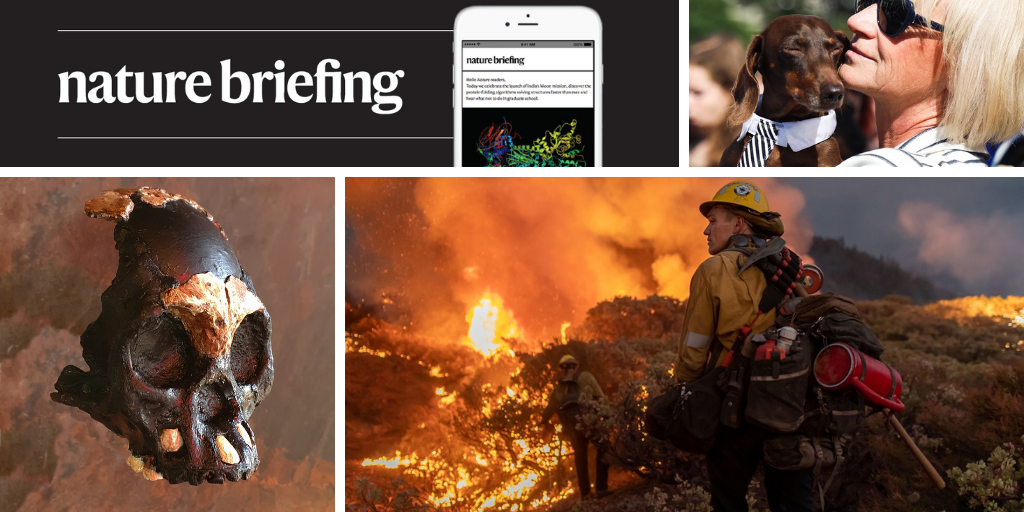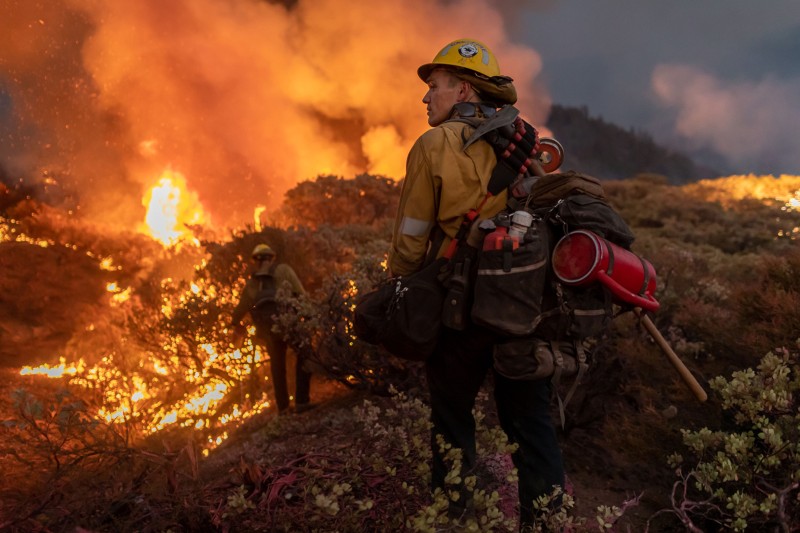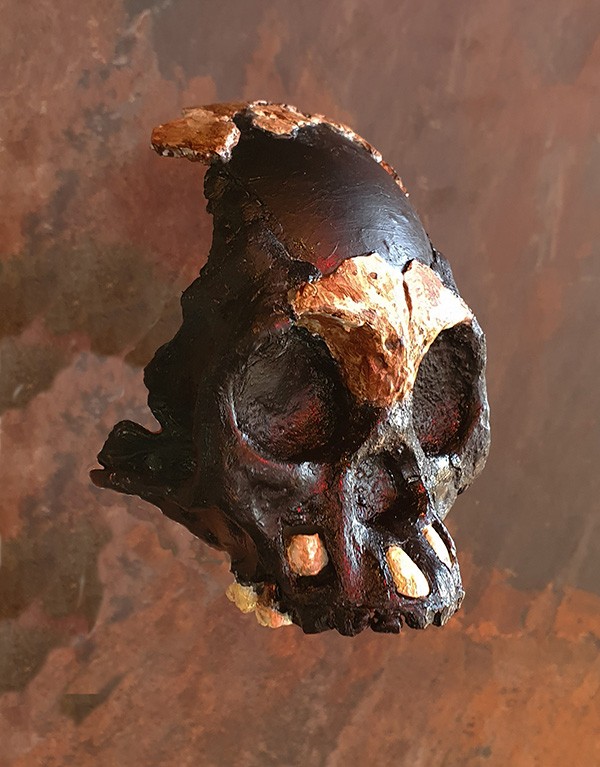Hello Nature readers, would you like to get this Briefing in your inbox free every day? Sign up here.
With wildfires increasing in frequency, size and intensity around the world, there is fresh urgency for researchers trying to understand the health effects of smoke exposure. They are investigating why wildfire smoke is more harmful to humans than other forms of pollution; its short-term and long-term effects; who is most vulnerable; and how best to keep people safe and healthy in smoke plumes that can stretch for thousands of kilometres.
NASA has delayed the launch of the James Webb Space Telescope by at least four days. A problem occurred while engineers were attaching the telescope to an adaptor that connects it to an Ariane 5 rocket. “A sudden, unplanned release of a clamp band — which secures Webb to the launch vehicle adapter — caused a vibration throughout the observatory,” said NASA. Liftoff has now been postponed from 18 December to 22 December to allow for more checks, “just for sheer caution”, says Thomas Zurbuchen, the director of science at NASA.
Read more: The telescope that ate astronomy (Nature | 10 min read, from 2010)
Features & opinion
Many domestic dogs — picture a dachshund, if you will — seem eons away in shape and lifestyle from their ancestor, the grey wolf (Canis lupus). Yet domestic dogs differ from their wild forebears by, at most, 0.2% of their mitochondrial DNA sequence. Palaeoanthropologist Pat Shipman recounts the lively tale of dog domestication and migration in her new book, writes reviewer Josie Glausiusz. Shipman hypothesizes that, perhaps 36,000 years ago, we teamed up with animals that she calls wolf-dogs — not yet fully resembling modern dogs, but no longer wolves — for mutual assistance with hunting and safety.
Michael (Mike) Rutter, who died last month aged 88, turned child psychiatry from an incoherent set of theories and practices into a rigorous and humane discipline, write cognitive neuroscientists Uta Frith and Francesca Happé. His discovery of a genetic basis for autism, published in 1977, transformed understanding and launched a new era of research. Although he was a formidable authority in the medical establishment, and a feared critic, he was accessible and encouraging to students and had recently donated one of his many prizes to support the work of younger colleagues.
Most academic staff in Afghanistan — particularly women and those with international links — are either in hiding or looking to leave following the Taliban takeover. “The reality is that we are all trying to emigrate,” says one anonymous researcher. Many organizations are ready to help them, but scholars need better tools to find that help, argues a Nature editorial. Nature calls for a larger and more visible response, coordinated globally, and preferably with a strong digital component, to assist all those whose lives are in danger.
In 1951, Ye Shuhua went to China’s Purple Mountain Observatory in search of a job and was told they only had a vacancy for a man. She was shocked, and wrote a letter to the observatory director listing five reasons he was wrong not to hire her, which eventually got her a job in Shanghai. In 1993, Ye became the first woman to head an observatory in China; she even has an asteroid named after her. She was crucial to the construction of China’s network of telescopes used to track celestial objects and spacecraft. Sixth Tone interviews Ye about the future of China’s space programme and the role of women in astronomy.
Image of the week
The first partial skull of a Homo naledi child has been found in the remote depths of the Rising Star cave in South Africa. The bone fragments and teeth belong to a child that died almost 250,000 years ago, when it was approximately 4–6 years old. Palaeoanthropologists have named the child Leti (pronounced Let-e) after the Setswana word letimela, meaning ‘the lost one’. The remains were found on a ledge in a tiny 20-by-80 centimeter passage — suggesting, say the researchers, that the skull was placed there deliberately, as a form of funerary practice. (New Scientist | 5 min read)
See more sharp science shots, selected by Nature’s photo team.









More News
Judge dismisses superconductivity physicist’s lawsuit against university
Future of Humanity Institute shuts: what’s next for ‘deep future’ research?
Star Formation Shut Down by Multiphase Gas Outflow in a Galaxy at a Redshift of 2.45 – Nature